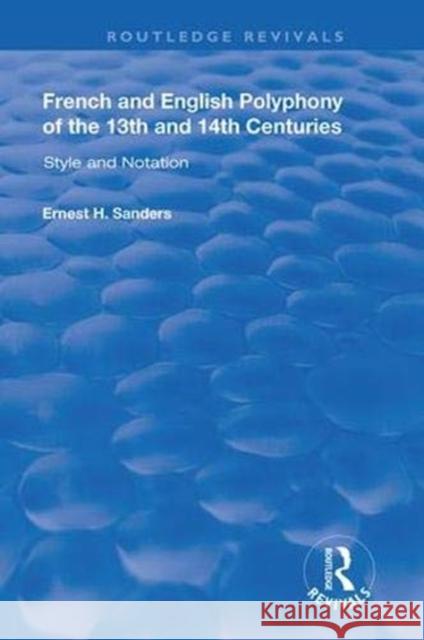French and English Polyphony of the 13th and 14th Centuries: Style and Notation » książka
topmenu
French and English Polyphony of the 13th and 14th Centuries: Style and Notation
ISBN-13: 9781138385238 / Angielski / Miękka / 2020 / 344 str.
French and English Polyphony of the 13th and 14th Centuries: Style and Notation
ISBN-13: 9781138385238 / Angielski / Miękka / 2020 / 344 str.
cena 165,80
(netto: 157,90 VAT: 5%)
Najniższa cena z 30 dni: 161,14
(netto: 157,90 VAT: 5%)
Najniższa cena z 30 dni: 161,14
Termin realizacji zamówienia:
ok. 22 dni roboczych.
ok. 22 dni roboczych.
Darmowa dostawa!
First published in 1998, this volume brings together the most part of the author’s work on medieval polyphony.











